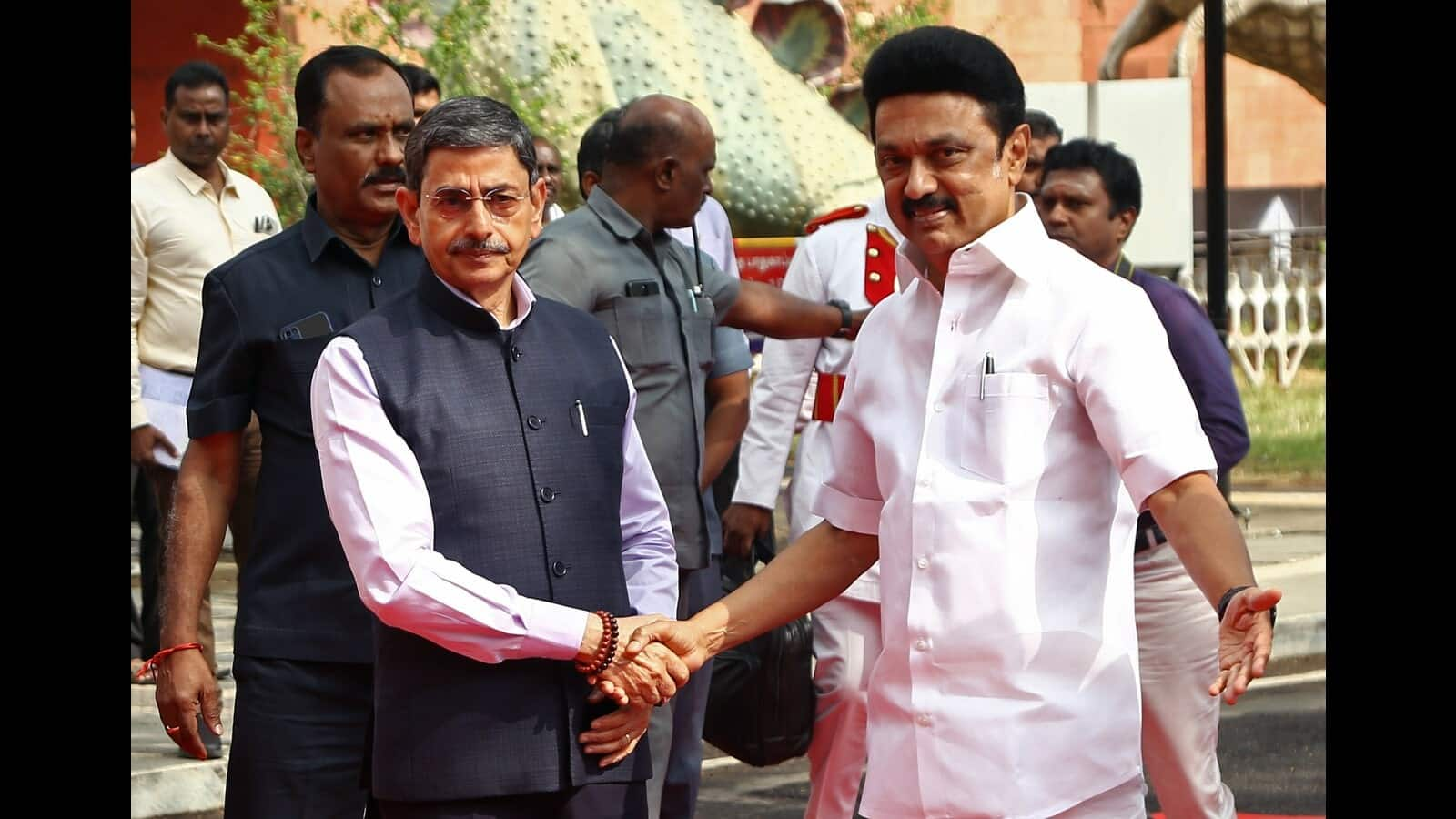
'Resolve or...': SC's ultimatum amid Tamil Nadu vice-chancellor appointment deadlock
What's the story
The Supreme Court of India has intervened in the ongoing tussle between the Tamil Nadu government and Governor RN Ravi over the appointment of university vice chancellors. On Friday, a bench headed by Justice JB Pardiwala asked both sides to amicably settle the matter by the next hearing. "By next date, if it is resolved well and good. Otherwise, we will resolve it," he said.
Legal dispute
Tamil Nadu government challenges Governor's actions
The dispute arose after Governor Ravi refused to approve bills designed to limit his powers to appoint vice chancellors of state-run universities. The Tamil Nadu government has filed two writ petitions against the governor's actions. The first petition challenges the governor's delay in approving multiple bills passed by the state legislature, claiming that it has led to a "constitutional deadlock."
Committee controversy
Second petition disputes Governor's notifications
The second petition challenges three notifications issued by Governor Ravi to constitute search-and-selection committees for vice chancellor appointments at Bharathiar University, Tamil Nadu Teachers Education University, and Madras University. The state claims these actions are "illegal" and reconstituted the committees without members from the University Grants Commission.
Political accusations
Governor withdraws search committees, DMK accuses him
Later, Governor Ravi withdrew the search committees he had constituted. The ruling Dravida Munnetra Kazhagam (DMK) party accused Governor Ravi of stalling bills to sabotage the state's development. In an earlier hearing, the court had asked why bills were pending since 2020 and if a governor could withhold assent without returning them to the Assembly.
Legal clarification
Supreme Court notes Governor's role in bill passing
Arguing that a governor is not just a technical supervisor, Solicitor General Tushar Mehta said he has an important role to play in passing bills. The court observed that under Article 200 of the Indian Constitution, a governor has three options: clear bills, withhold assent, or send them to the President. The Supreme Court has fixed further hearings for next Wednesday to resolve these issues, if any.